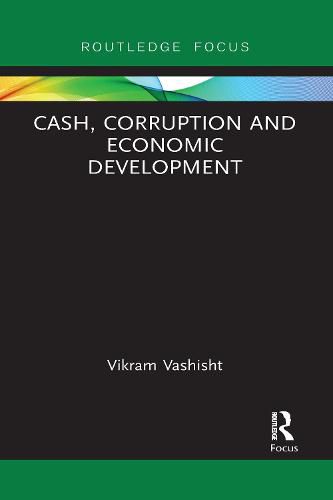Readings Newsletter
Become a Readings Member to make your shopping experience even easier.
Sign in or sign up for free!
You’re not far away from qualifying for FREE standard shipping within Australia
You’ve qualified for FREE standard shipping within Australia
The cart is loading…






Have you ever asked yourself what gives comfort to someone who demands and accepts a bribe, sells drugs or commits professional crimes for money? The majority of these people are not wealthy, and they accept small amounts of money every day from their victims.
Cash, Corruption and Economic Development examines the causes of corruption and crime and highlights what brings comfort to all those who accept bribes and kickbacks, arguing that it is paper currency because it does not leave a signature of its movement from one entity to another. The author proposes that today, with the technology available, we can make the transition to a paper currency-free economy, which will help reduce corruption and crime and give a boost to economic development. The book analyses the causes of corruption and presents a replacement for the current model, to be implemented by a central bank and followed by banks operating within its jurisdiction.
This book will be of interest to economists, students of economics and finance, and all those who have suffered as a result of corruption and professional crime and want these practices to end.
$9.00 standard shipping within Australia
FREE standard shipping within Australia for orders over $100.00
Express & International shipping calculated at checkout
Have you ever asked yourself what gives comfort to someone who demands and accepts a bribe, sells drugs or commits professional crimes for money? The majority of these people are not wealthy, and they accept small amounts of money every day from their victims.
Cash, Corruption and Economic Development examines the causes of corruption and crime and highlights what brings comfort to all those who accept bribes and kickbacks, arguing that it is paper currency because it does not leave a signature of its movement from one entity to another. The author proposes that today, with the technology available, we can make the transition to a paper currency-free economy, which will help reduce corruption and crime and give a boost to economic development. The book analyses the causes of corruption and presents a replacement for the current model, to be implemented by a central bank and followed by banks operating within its jurisdiction.
This book will be of interest to economists, students of economics and finance, and all those who have suffered as a result of corruption and professional crime and want these practices to end.